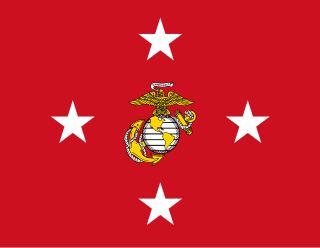 W
WThe commandant of the Marine Corps (CMC) is normally the highest-ranking officer in the United States Marine Corps and is a member of the Joint Chiefs of Staff. The CMC reports directly to the secretary of the Navy and is responsible for ensuring the organization, policy, plans, and programs for the Marine Corps as well as advising the president, the secretary of defense, the National Security Council, the Homeland Security Council, and the secretary of the Navy on matters involving the Marine Corps. Under the authority of the secretary of the Navy, the CMC designates Marine personnel and resources to the commanders of Unified Combatant Commands. The commandant performs all other functions prescribed in Section 5043 in Title 10 of the United States Code or delegates those duties and responsibilities to other officers in his administration in his name. As with the other joint chiefs, the commandant is an administrative position and has no operational command authority over United States Marine Corps forces.
 W
WJames F. "Jim" Amos is a retired United States Marine Corps officer who served as the 35th Commandant of the Marine Corps. As a naval aviator, Amos commanded the 3rd Marine Aircraft Wing during the Iraq War in 2003 and 2004. He served as the 31st Assistant Commandant of the Marine Corps from 2008 to 2010, and was the first Marine Corps aviator to serve as commandant.
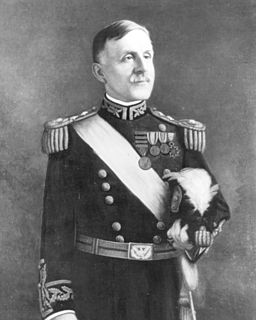 W
WGeorge Barnett was the 12th Commandant of the United States Marine Corps. He was a pioneer of amphibious warfare and the U.S. Marine Commandant during American involvement in World War I.
 W
WRobert Hilliard Barrow was a United States Marine Corps four-star general. Barrow was the 27th Commandant of the Marine Corps from 1979 to 1983. He served for 41 years, including overseas command duty in World War II, the Korean War and the Vietnam War. General Barrow was awarded the Navy Cross and Distinguished Service Cross for extraordinary heroism in Korean and Vietnam, respectively.
 W
WDavid Hilberry Berger is a United States Marine Corps general currently serving as the 38th Commandant of the United States Marine Corps.
 W
WMajor General William Phillips Biddle was the 11th Commandant of the United States Marine Corps.
 W
WWilliam Ward Burrows I was the second Commandant of the Marine Corps. His son, William Ward Burrows II, was a decorated officer in the United States Navy.
 W
WClifton Bledsoe Cates was a United States Marine Corps general who served as the 19th Commandant of the Marine Corps from 1948 to 1951. He was honored for his heroism during World War I at the Battle of Belleau Wood, and for his for inspired combat leadership at the Battle of Iwo Jima in World War II. He is considered one of the most distinguished young officers of World War I. Cates was one of the few officers from any branch of service to have commanded a platoon, a company, a battalion, a regiment, and a division each in combat.
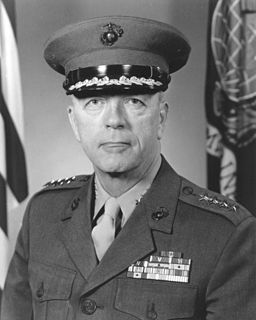 W
WLeonard Fielding Chapman Jr. was a United States Marine Corps general who served as the 24th Commandant of the Marine Corps from 1968 to 1972. He was a World War II combat veteran, decorated for his actions in the Battle of Peleliu and the Battle of Okinawa. He retired from the Marine Corps after 37 years of service. In retirement, he served as the Commissioner of the Immigration and Naturalization Service.
 W
WJames Terry Conway is a retired United States Marine Corps general who served as the 34th Commandant of the Marine Corps. Among his previous postings were Director of Operations (J-3) on the Joint Chiefs of Staff, Commanding General of 1st Marine Division and I Marine Expeditionary Force, taking part in the 2003 invasion of Iraq and the First Battle of Fallujah.
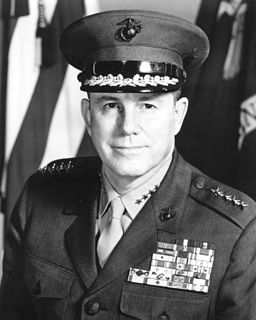 W
WRobert Everton Cushman Jr. was a United States Marine Corps general who served as the 25th commandant of the Marine Corps from January 1, 1972, to June 30, 1975. He was honored for heroism during World War II at the battles of Guam, Bougainville and Iwo Jima. He also commanded all Marine forces in the Vietnam War from June to December 1967, and served as deputy director of the Central Intelligence Agency (CIA) from 1969 to 1971.
 W
WJoseph Francis Dunford Jr. is a retired United States Marine Corps general, who served as the 19th Chairman of the Joint Chiefs of Staff from October 1, 2015 until September 30, 2019. He was the 36th Commandant of the Marine Corps. Dunford is the first Marine Corps officer to serve in four different four-star positions; the others include commander of the International Security Assistance Force and United States Forces – Afghanistan from February 2013 until August 2014, and as the 32nd Assistant Commandant of the Marine Corps from October 23, 2010, to December 15, 2012. He has commanded several units, including the 5th Marine Regiment during the 2003 invasion of Iraq.
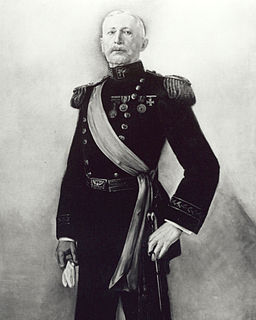 W
WGeorge Frank Elliott was a United States Marine Corps major general. He was the tenth Commandant of the Marine Corps between 1903 and 1910.
 W
WBen Hebard Fuller was a major general in the United States Marine Corps and served as the 15th Commandant of the Marine Corps between 1930 and 1934.
 W
WAnthony Gale was the fourth Commandant of the United States Marine Corps and the only one ever fired. Fewer records survive concerning him than any other commandant. He is the only commandant for whom the Marines neither know his burial location nor have a portrait or likeness.
 W
WAlfred M. Gray Jr. is a retired United States Marine Corps general who served as the 29th Commandant of the Marine Corps from 1 July 1987 until his retirement on 30 June 1991 after 41 years of service.
 W
WWallace Martin Greene Jr. was a United States Marine Corps general who served as the 23rd Commandant of the Marine Corps from January 1, 1964, to December 31, 1967.
 W
WMichael William Hagee is a retired United States Marine Corps general who served as the 33rd Commandant of the Marine Corps from 2003 to 2006, succeeding General James L. Jones on January 13, 2003. He stepped down as Commandant two months before the end of his four-year term, and was succeeded by General James T. Conway on November 13, 2006. On that date, Hagee had his retirement ceremony just prior to the passage of command ceremony. Hagee retired from the Marine Corps on January 1, 2007.
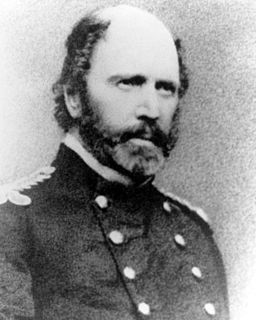 W
WJohn Harris was the sixth Commandant of the Marine Corps. He served in the Marine Corps for over 50 years, attaining the rank of colonel.
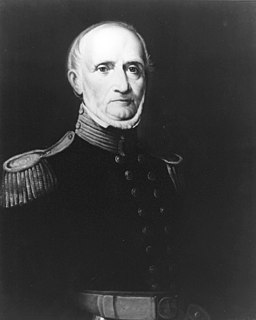 W
WArchibald Henderson was the longest-serving Commandant of the Marine Corps, serving from 1820 to 1859. His name is learned by all recruits at Marine recruit training as the "Grand old man of the Marine Corps," serving in the United States Marine Corps for over 52 years.
 W
WMajor General Charles Heywood was the ninth Commandant of the Marine Corps. He served as an officer for over 45 years and was the first Marine to reach the rank of major general. During Heywood's term as Commandant, the size of the Corps more than tripled, from 2,175 Marines to 7,810 total.
 W
WThomas Holcomb was the seventeenth Commandant of the United States Marine Corps (1936–1943). He was the first Marine to achieve the rank of general. After retiring from the Marine Corps, Holcomb served as Minister to South Africa (1944–1948). Among his ancestors is Commodore Joshua Barney, a famous Naval hero.
 W
WJames F. Glynn is a U.S. Marine Major General and commander of United States Marine Corps Forces Special Operations Command.
 W
WJames Logan Jones Jr. is a retired United States Marine Corps general who served as the 22nd United States National Security Advisor from 2009 to 2010. During his military career, he served as the 32nd Commandant of the Marine Corps from July 1999 to January 2003, and Commander, United States European Command and Supreme Allied Commander Europe from 2003 to 2006. Jones retired from the Marine Corps on February 1, 2007, after 40 years of service.
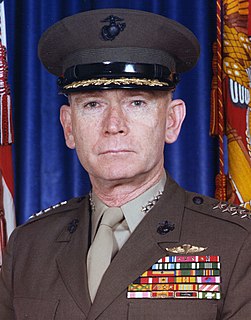 W
WPaul Xavier Kelley was a United States Marine Corps general who served as the 28th Commandant of the United States Marine Corps from July 1, 1983, to June 30, 1987.
 W
WCharles Chandler Krulak is a retired United States Marine Corps officer who served as the 31st Commandant of the Marine Corps from July 1, 1995 to June 30, 1999. He is the son of Lieutenant General Victor H. "Brute" Krulak, who served in World War II, Korea, and Vietnam. He was the 13th President of Birmingham-Southern College after his stint as a non-executive director of English association football club Aston Villa.
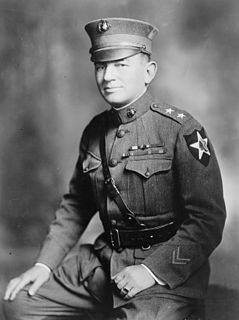 W
WJohn Archer Lejeune was a United States Marine Corps lieutenant general and the 13th Commandant of the Marine Corps. Lejeune had nearly 40 years service in the Marine Corps including commanding the U.S. Army's 2nd Division during World War I. His service with the Marine Corps after he retired was as the 5th Superintendent of the Virginia Military Institute.
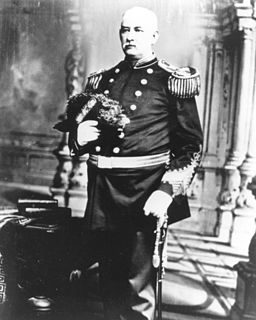 W
WCharles Grymes McCawley was the eighth Commandant of the Marine Corps and served as an officer in the United States Marine Corps during the Mexican–American War and the American Civil War.
 W
WCarl Epting Mundy Jr. was a United States Marine Corps general who served as the 30th Commandant of the Marine Corps and a member of the Joint Chiefs of Staff from July 1, 1991 until his retirement on June 30, 1995, after 42 years of service.
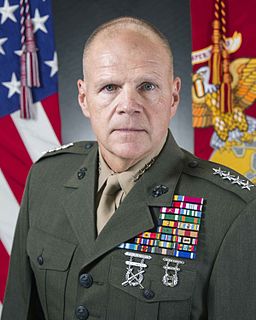 W
WRobert Blake Neller is a retired United States Marine Corps four-star general who served as the 37th Commandant of the Marine Corps. He assumed his assignment on September 24, 2015 and retired on July 11, 2019. He was succeeded by David H. Berger.
 W
WWendell Cushing Neville was a major general of the United States Marine Corps. He was a Medal of Honor recipient and 14th Commandant of the Marine Corps between 1929 and 1930.
 W
WSamuel Nicholas was the first officer commissioned in the United States Continental Marines and by tradition is considered to be the first Commandant of the Marine Corps.
 W
WRandolph McCall Pate was a United States Marine Corps general who served as the 21st Commandant of the Marine Corps from 1956 to 1959.
 W
WJohn Henry Russell Jr. was a major general and 16th Commandant of the Marine Corps.
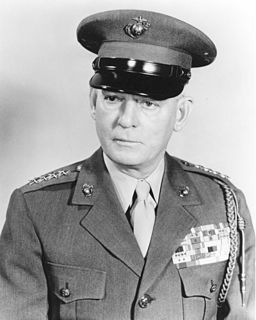 W
WLemuel Cornick Shepherd Jr. was a four-star general of the United States Marine Corps. A veteran of World War I, World War II, and the Korean War, he was the 20th Commandant of the Marine Corps. As Commandant, he secured a place on the Joint Chiefs of Staff, gaining parity for the Marine Corps with the other military services.
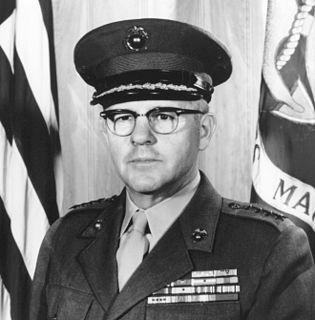 W
WDavid Monroe Shoup was a general of the United States Marine Corps who was awarded the Medal of Honor in World War II, served as the 22nd Commandant of the Marine Corps, and, after retiring, became one of the most prominent critics of the Vietnam War.
 W
WGeneral Alexander Archer Vandegrift, USMC was a United States Marine Corps four-star general. During World War II, he commanded the 1st Marine Division to victory in its first ground offensive of the war, the Battle of Guadalcanal. For his actions on August 7 to December 9, 1942, in the Solomon Islands campaign, he received the Medal of Honor. Vandegrift later served as the 18th Commandant of the Marine Corps. He was the first four-star general on active duty in the Marine Corps.
 W
WFranklin Wharton was the third Commandant of the United States Marine Corps.
 W
WLouis Hugh Wilson Jr. was a general in the United States Marine Corps and a World War II recipient of the Medal of Honor for his actions during the Battle of Guam. He served as the 26th commandant of the Marine Corps from 1975 until his retirement from the Marine Corps in 1979, after 38 years of service.
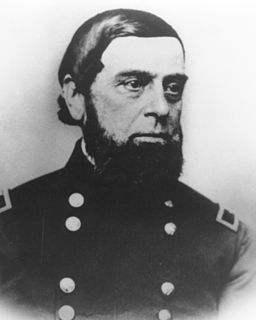 W
WJacob Zeilin was the United States Marine Corps' first non-brevet flag officer. He served as the seventh commandant of the United States Marine Corps, from 1864 to 1876.